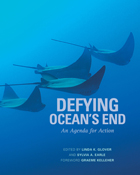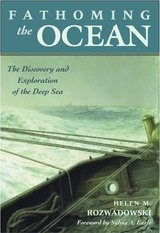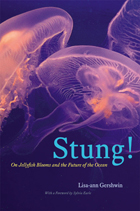
If humankind were given a mandate to do everything in our power to undermine the earth's functioning, we could hardly do a better job than we have in the past thirty years on the world's oceans, both by what we are putting into it-millions of tons of trash and toxic materials-and by what we are taking out of it-millions of tons of wildlife. Yet only recently have we begun to understand the scale of those impacts.
Defying Ocean's End is the result of an unprecedented effort among the world's largest environmental organizations, scientists, the business community, media, and international governments to address these marine issues. In June 2003, in the culmination of a year-long effort, they met specifically to develop a comprehensive and achievable agenda to reverse the decline in health of the world's oceans.
As conservation organizations begin to expand their focus from land issues to include a major focus on preservation of the sea, it is increasingly apparent that we have to approach marine conservation differently and at much larger scale than we have to date. What's also clear is the magnitude and immediacy of the growing ocean concerns are such that no one organization can handle the job alone.
Defying Ocean's End is a bold step in bringing the resources needed to bear on this vast problem before it is too late. It offers a broad strategy, a practical plan with priorities and costs, aimed at mobilizing the forces needed to bring about a "sea change" of favorable attitudes, actions, and outcomes for the oceans-and for all of us.

By the middle of the nineteenth century, as scientists explored the frontiers of polar regions and the atmosphere, the ocean remained silent and inaccessible. The history of how this changed—of how the depths became a scientific passion and a cultural obsession, an engineering challenge and a political attraction—is the story that unfolds in Fathoming the Ocean.
In a history at once scientific and cultural, Helen Rozwadowski shows us how the Western imagination awoke to the ocean's possibilities—in maritime novels, in the popular hobby of marine biology, in the youthful sport of yachting, and in the laying of a trans-Atlantic telegraph cable. The ocean emerged as important new territory, and scientific interests intersected with those of merchant-industrialists and politicians. Rozwadowski documents the popular crazes that coincided with these interests—from children's sailor suits to the home aquarium and the surge in ocean travel. She describes how, beginning in the 1860s, oceanography moved from yachts onto the decks of oceangoing vessels, and landlubber naturalists found themselves navigating the routines of a working ship's physical and social structures.
Fathoming the Ocean offers a rare and engaging look into our fascination with the deep sea and into the origins of oceanography—origins still visible in a science that focuses the efforts of physicists, chemists, geologists, biologists, and engineers on the common enterprise of understanding a vast, three-dimensional, alien space.


READERS
Browse our collection.
PUBLISHERS
See BiblioVault's publisher services.
STUDENT SERVICES
Files for college accessibility offices.
UChicago Accessibility Resources
home | accessibility | search | about | contact us
BiblioVault ® 2001 - 2025
The University of Chicago Press









